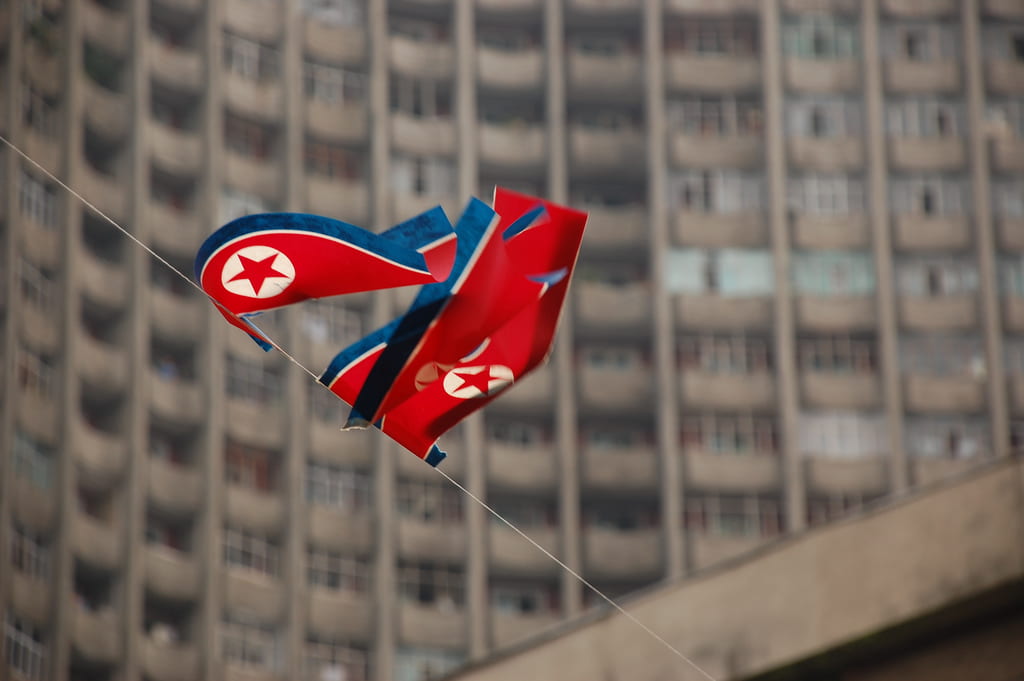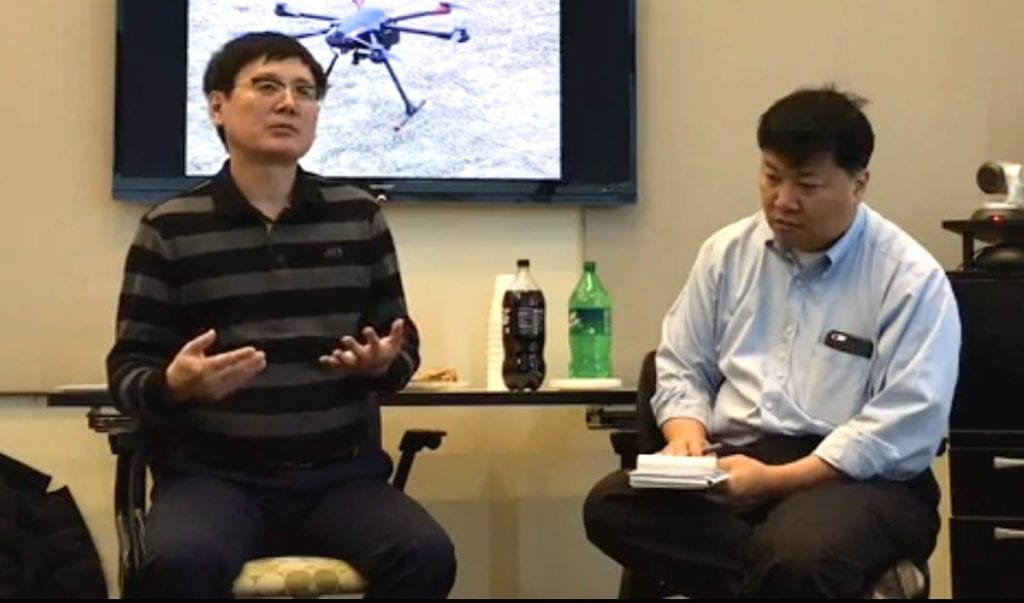
Jung Gwang Il sits in front of a room of twenty people with his translator and colleague, Henry Song. He begins to tell his tale, beginning with his birth in China.
Persecuted for their beliefs in China, Jung’s family fled to North Korea in the 1960’s when he was only seven years old. As an adult, Jung was in the North Korean military for ten years, and then found work with a trade company. The 1990s, when Jung was working as a businessman, was a particularly hard time for North Koreans. Following the death of Kim Il-Sung in 1994, the country experienced four years of famine and despair. Jung recalls seeing “twenty fresh bodies killed by starvation every day,” during this period, known by North Koreans as the Arduous March. Seeking extra revenue in such a difficult time, many traders looked for money in any avenue they could find. These business wanderings ultimately lead to Jung’s arrest and imprisonment, as unapproved foreign dealings were taboo. In 1999, Jung was reported by a colleague for meeting with South Korean businessmen and was subsequently arrested for suspected espionage.
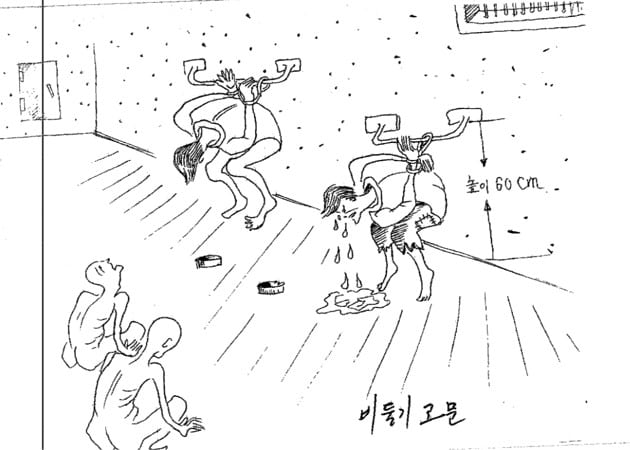
Jung, following his arrest, underwent a ten-month period of water, electric, and pigeon torture. He went from 170 pounds to 80 pounds during these months and was unable to walk without clutching a wall. After ten months of enduring constant torture, Jung finally falsely confessed to espionage simply so that the torture would stop. He was then sent to an infamous prison camp known as No. 15, or Yodok concentration camp. Jung says that there were around seven-hundred other political prisoners, some imprisoned for offenses as contacting Christianity or criticizing the regime. He recalled one inmate whose offense was accidentally ripping a newspaper with Kim Jong-Il’s face on it—which was reported by his wife to the authorities.
Life at the camps were not very different than the initial months of torture, according to Jung. Inmates were forced to work sixteen hour days with only one daily meal of 600 grams of ground corn (equivalent to around 2.5 cups). This small portion of food was only awarded if an inmate finished their work quota; many did not, and consequently died of starvation. Jung believes he buried as many as three hundred prisoners himself during his three years at Yodok. This comes with a heavy emotional toll— every time Jung speaks of the horrors at Yodok, he says he can never sleep the following night because of the nightmares.
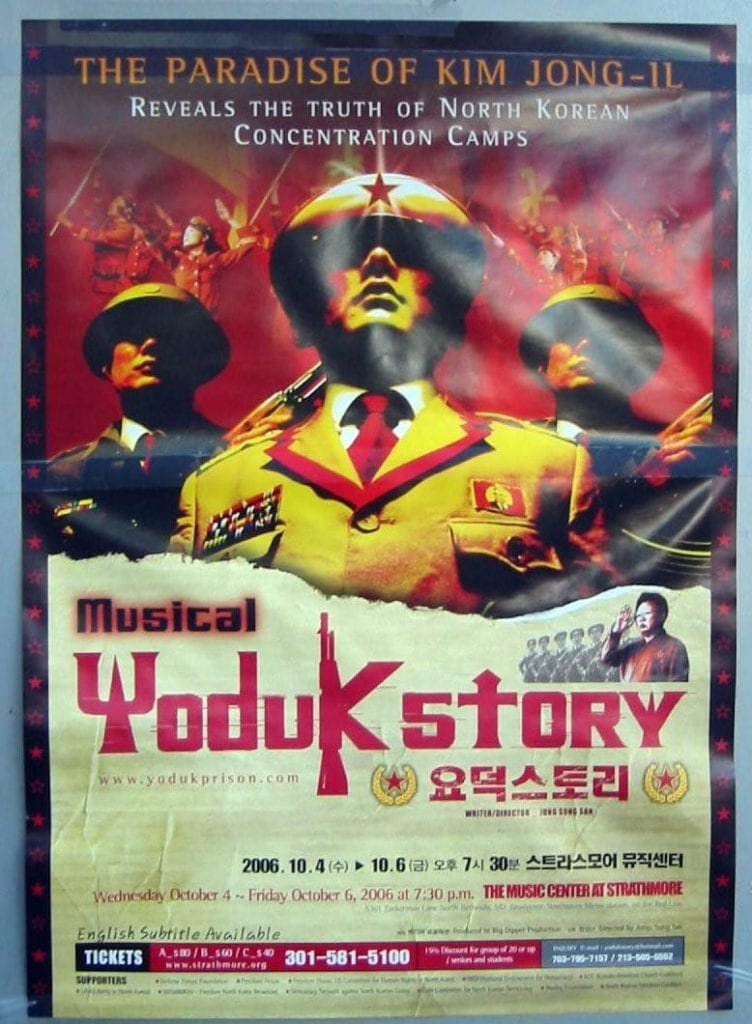
On April 12, 2003, Jung was released. Although he only spent three years in the camp (a relatively light sentence in American prison) Jung says it was “hell on Earth that felt like an eternity.” Twelve days after his release, Jung fled to a series of countries. After swimming to China through the Tumen River, Jung traveled through Vietnam, Cambodia, Thailand, and finally settled in South Korea. It was in South Korea that Jung realized he could never forget the faces of the inmates in Yodok, and vowed to become an activist in their names. He wrote a comprehensive list of everyone and everything he could remember, which was later used as evidence in United Nations resolutions against North Korean human rights violations. His activism did not stop there; he wanted to deliver news and information to the North Koreans to inspire social change and revolt. To achieve this, Jung formed a non-governmental organization entitled No Chain, inspired by the idea of breaking the chain that binds the North Korean people. No Chain specializes in sending information-packed CDs, DVDs, USB flash drives, and micro SD cards to the North Koreans via drones. Predominantly using micro SDs, they are disguised with brand-new packaging but are filled with movies, documentaries, South Korean dramas, k-pop, and other forms of media. No Chain initially used a human network, but now uses drones after Kim Jung-Un ordered guards to shoot civilians crossing the river on sight in 2014. North Korea is trying to cover up their efforts by labeling Jung as a “terrorist” and “human scum,” claiming he uses his helicopter drones to destroy statues of present and past leaders.
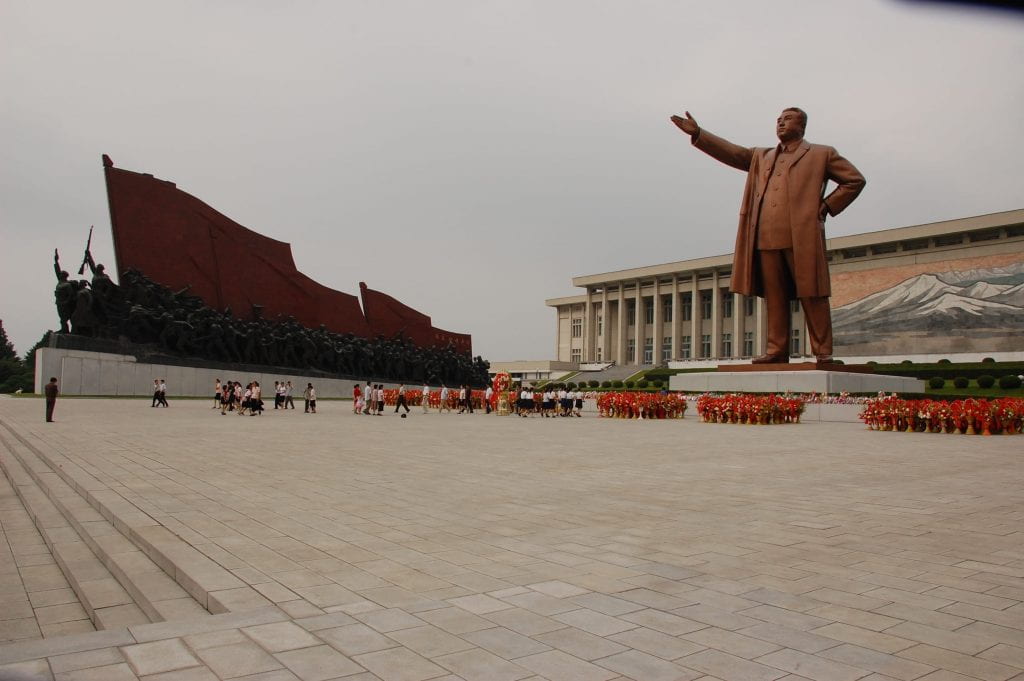
Today, the goals of No Chain are to gain help in their efforts to disseminate information to the North Korean people. Jung and Song have been traveling to universities and festivals across the world to share Jung’s story along with No Chain’s platform. Jung urges students to send in personal video messages and any other media they possibly can to send to North Korean youth. In regards to the real threat of North Korea’s nuclear capabilities, Jung advises “not to fear,” because information dissemination is what the regime is most afraid of. If their mission is successful, Jung hopes the North Koreans will be able to wake up and subdue the dictatorial regime and end the nuclear threat. Jung ends the speech with a rallying cry: “UAB, help us!”
To get in contact with No Chain, you can follow their Facebook page or contact their director, Henry Song, at (202) 341-6767 or henry@nknochain.org.
